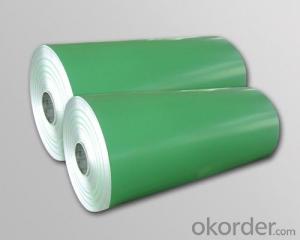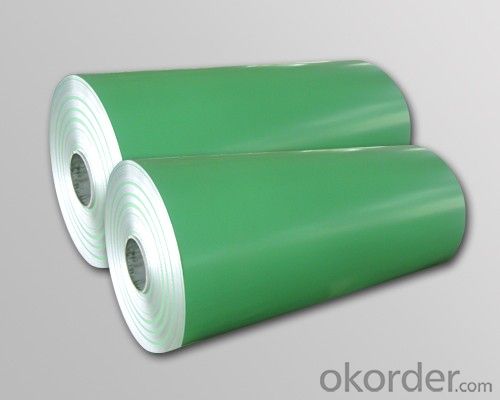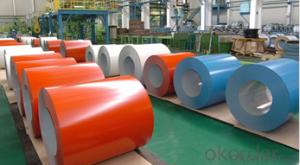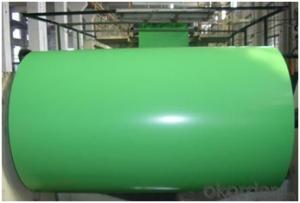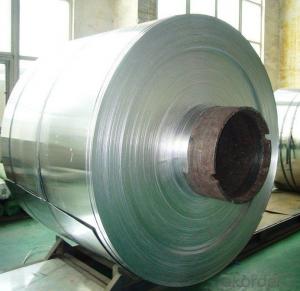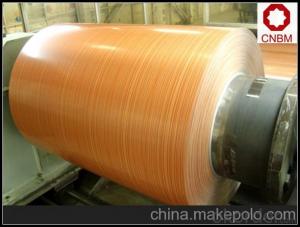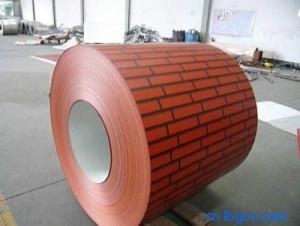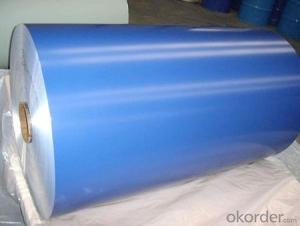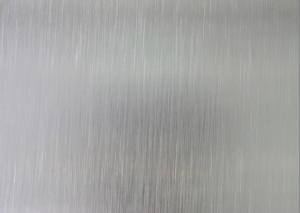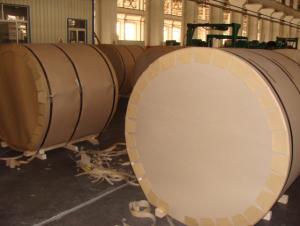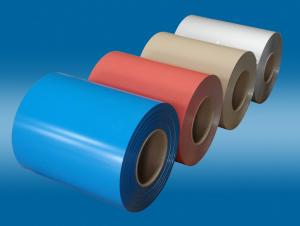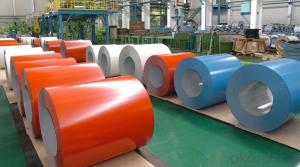Rheem Aluminum Coils - PE Coated Aluminium Coil AA8XXX
- Loading Port:
- China Main Port
- Payment Terms:
- TT OR LC
- Min Order Qty:
- -
- Supply Capability:
- -
OKorder Service Pledge
OKorder Financial Service
You Might Also Like
Product Description:
1 Specifications of PE Coated Aluminum Coil/Sheet
Alloy | AA1050,AA1060, AA1070, AA1100, AA3003, AA3004, AA3005, AA3105, AA5005, AA5052, AA5754, AA5083, AA8011 |
Temper: | H12, H14, H16, H18, H22, H24, H26, H32,HO, F |
Thickness: | 0.10-4.0mm |
Width: | 10mm- 2000mm |
Coating | PE(Polyester) |
Painting Thickness | Standard 16-25 microns, max 40 microns |
Color | Acording to Ral colors or customer’s samples |
Standard: | GB/T17748-1999, ASTM, ISO, EU standard |
Special Specification is available on customer’s requirement | |
PE(polyester) Coating
PE(polyester) coating:high molecular polymer as monomer and addition of alkyd, is an UV-resistant coating. It can be classified matt and glossy according to coating gloss. The compact molecule structure, makes paint surface luster and smooth,which assure good printing on the panel surface. With an warranty of 8-10 years for weather resistance, it is specially applied for internal decoration and sign board.
2 Usage/Applications of PE Coated Aluminum Coil/Sheet
Our company's PE Coated Aluminum Coil/Sheet have been widely used in the fields of construction and decoration(garage doors, ceiling etc.), electronic appliances, lighting decoration, air-condition air pipe, sanwich panels and drainage, etc.
- Q: What do the two items (COIL:873347 HEAT: number) on the label of the raw material of aluminum coil stand for?
- COIL means aluminum coil and HEAT means heating, so together they mean hot rolled coil.
- Q: Are there any environmental benefits to using aluminum coils?
- Using aluminum coils offers several environmental benefits. First and foremost, aluminum is a highly sustainable material that can be recycled without losing its original properties. This reduces the need for mining and extracting new raw materials, thereby decreasing the environmental impact of these processes. Additionally, recycling aluminum requires only a fraction of the energy needed to produce primary aluminum, resulting in substantial energy savings and reduced greenhouse gas emissions. In addition, aluminum coils have a longer lifespan compared to other commonly used materials like copper or steel. This means that fewer coils need to be manufactured and replaced over time, leading to reduced waste generation and a lower overall environmental impact. Furthermore, aluminum is corrosion-resistant, eliminating the need for potentially harmful treatments or coatings. This reduces the release of hazardous substances into the environment during the manufacturing and use of aluminum coils. Lastly, aluminum's lightweight nature contributes to lower transportation costs and energy consumption during distribution. This results in decreased fuel consumption and associated emissions, ultimately reducing the carbon footprint of using aluminum coils. Taking all these factors into consideration, the use of aluminum coils provides significant environmental benefits, including reduced resource extraction, energy conservation, waste reduction, and lower emissions.
- Q: Are there any limitations to the minimum coil width of aluminum coils?
- Yes, there are limitations to the minimum coil width of aluminum coils. These limitations depend on various factors such as the type and thickness of the aluminum, the specific manufacturing process, and the equipment used. Generally, the minimum coil width is determined by the capabilities of the rolling mills or slitters used in the production process. These machines have certain minimum width settings that cannot be exceeded. Additionally, extremely narrow coil widths may pose challenges in terms of handling, transportation, and processing.
- Q: Can aluminum coils be used in pharmaceutical manufacturing?
- Yes, aluminum coils can be used in pharmaceutical manufacturing. Aluminum is a commonly used material in the pharmaceutical industry due to its excellent properties such as corrosion resistance, light weight, and ability to maintain product integrity. Aluminum coils are often utilized for packaging purposes, such as in blister packs, due to their suitability for protecting the medicine from moisture, light, and external contaminants.
- Q: Can aluminum coils be used in the production of kitchen utensils?
- Yes, aluminum coils can be used in the production of kitchen utensils. Aluminum is a popular choice for kitchen utensils due to its excellent heat conductivity, lightweight nature, and corrosion resistance. It can be easily formed into various shapes, making it suitable for manufacturing utensils like pots, pans, and baking sheets.
- Q: What is an aluminum coil and what is it used for?
- An aluminum coil, shaped like a rolled-up sheet of aluminum, is made from high-quality aluminum alloys known for their durability, lightweight nature, and resistance to corrosion. Aluminum coils are widely used in various industries, particularly in the manufacturing sector where they are utilized to create aluminum products like cans, containers, and packaging materials. The flexibility and malleability of aluminum coils allow them to be easily shaped into different sizes and forms. Moreover, the construction industry extensively relies on aluminum coils for multiple purposes. These coils are commonly employed in roofing, siding, gutters, and other exterior applications due to their ability to withstand harsh weather conditions and resist corrosion. Their lightweight nature also simplifies handling and installation, reducing labor and transportation expenses. Furthermore, aluminum coils play a crucial role in heating, ventilation, and air conditioning (HVAC) systems. They are integral components in the production of condenser and evaporator coils, which are essential for regulating temperature and humidity in residential, commercial, and industrial buildings. To summarize, aluminum coils are highly versatile and valuable materials that have widespread applications in numerous industries. Their lightweight nature, resistance to corrosion, and malleability make them an excellent choice for manufacturing aluminum products, as well as for construction and HVAC applications.
- Q: This question asks whether aluminum coils are produced using recycled materials.
- <p>Yes, aluminum coils can be made from recycled materials. Recycling aluminum is a common practice because it conserves resources and energy. Recycled aluminum, also known as secondary aluminum, is processed from various waste materials such as used beverage cans, automotive parts, and construction materials. The recycling process involves melting the scrap aluminum, which requires significantly less energy compared to producing aluminum from raw materials. This makes the production of aluminum coils from recycled materials more sustainable and environmentally friendly.</p>
- Q: How are aluminum coils inspected for quality?
- Aluminum coils are inspected for quality through various methods such as visual examination, dimensional measurements, and non-destructive testing techniques. These inspections involve scrutinizing the surface of the coil for any defects, ensuring it meets the specified dimensions, and conducting tests like ultrasonic or eddy current testing to detect any internal flaws or discontinuities. These rigorous inspections help ensure that the aluminum coils meet the required standards and are of high quality.
- Q: How do aluminum coils contribute to the insulation properties of products?
- The insulation properties of various products are greatly enhanced by aluminum coils, playing a crucial role. The utilization of aluminum coils in insulation systems leads to improved thermal efficiency, decreased heat transfer, and reduced energy consumption. To begin with, aluminum possesses excellent heat and electricity conducting abilities. This particular characteristic enables aluminum coils to distribute and dissipate heat effectively, preventing the transfer of thermal energy from one side of the product to the other. Consequently, aluminum coils act as a barrier, minimizing the loss or gain of heat, which is essential for maintaining optimal temperatures across different applications. Additionally, aluminum coils exhibit low thermal conductivity. This implies that they are not easily affected by temperature changes and do not efficiently transfer heat. As a result, products incorporating aluminum coils can better withstand external temperature fluctuations, providing superior insulation against hot or cold conditions. Moreover, aluminum coils are lightweight, allowing for easy handling and installation in various products. This lightweight attribute is advantageous as it does not impose significant weight on the overall structure, making it suitable for industries requiring portable or lightweight insulation solutions. Furthermore, aluminum possesses high resistance to corrosion, making it ideal for applications in humid or corrosive environments. This durability ensures that the insulation properties of products containing aluminum coils remain effective over an extended period, without deterioration or compromise in performance. Additionally, aluminum is a recyclable material, aligning with sustainable practices. The use of aluminum coils in insulation products promotes environmental consciousness by reducing waste and energy consumption associated with the manufacturing of new materials. In conclusion, aluminum coils contribute significantly to the insulation properties of products by effectively distributing and dissipating heat, minimizing heat transfer, and resisting temperature fluctuations. Their lightweight nature, durability, and recyclability further augment their effectiveness as an insulation component. Overall, aluminum coils represent a valuable addition to insulation systems, enhancing thermal efficiency and decreasing energy consumption.
- Q: I have a electrical project to do, and could save about $300.00 by using aluminum wire since I can get it free, but I have never used aluminum before, and am not sure if it is a good way to go.
- Every supply drop I have ever installed larger than 2/0 is aluminum. It is very common and a whole lot cheaper than copper. If you upsize the diameter correctly for your load, you will have no more voltage drop/heating than the smaller (yet more expensive) copper over the same distance. Some jurisdictions prohibit copper in branch wiring, or require an additional inspection fee, since every device must be examined for safety.
Send your message to us
Rheem Aluminum Coils - PE Coated Aluminium Coil AA8XXX
- Loading Port:
- China Main Port
- Payment Terms:
- TT OR LC
- Min Order Qty:
- -
- Supply Capability:
- -
OKorder Service Pledge
OKorder Financial Service
Similar products
Hot products
Hot Searches
Related keywords
